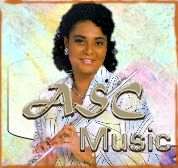Talent or Skill
Thursday, August 30, 2018 by Averil Spence-Clarke | Education
Whenever people hear that I am a musician, they always say "I have no musical talent - I wish I did. I tried piano/trombone/kazoo etc. but it just didn't work". Today, many of those same adults are the parents who bring their child(ren) for music lessons hoping that talent will make their child the next American idol or Adele. A key concept that I think is important to understand is that greatness or talent isn't born, it's grown.
Somewhere along the way we have become wedded to the idea that talent is in our DNA. Let me assure you, it is not. Anyone who has succeeded at music, sports, science or in any arena has usually accomplished their success through specific methods of learning/practicing, how they stayed motivated and the coaching or teaching methodology. How one practices, fails, the praise/criticism that they receive are all part of the structure that contributes to success.
So, what can we do as parents to help motivate and excite our child/children's imagination and passion:
- Help them to fire up their love of music - can they see themselves playing for friends and family; do they like playing in the park; for Grandparents, as they dance around the room. Let their imagination run wild and free and use that energy to motivate their practicing - they will learn faster, remember more clearly, and enjoy their time with the instrument.
- Slow and careful practicing is usually more productive than quick and thoughtlessly. Our hearing need time to connect with the brain and establish necessary links. It will allow the student to hear, recognize and fix errors before they become entrenched habits. Neither as adults or as children do we like to take risks or make those mistakes. Encourage and praise the effort they make and the risks they take when learning. Expose them to other musicians and performers as often as possible. Children learn well by seeing and copying. The more they see and can imagine themselves doing the same as the musician they saw, the faster and easier they will accomplish the skill of playing.
- Mistakes should not be judged as "bad". When we make a mistake, it encourages us to build more effective skill sets that ultimately support better understanding and grows the technical prowess. As parents we usually want to do it for the student especially the younger ones. Know that the energy and commitment must come from the child. We are there to be aware and encourage their interest even if we don't always understand it and to praise and support their efforts. If your child wants to play the first three notes of Three Blind Mice over and over, let them - they are ingesting all types of information by listening and enjoying.
- All skills and especially the acquisition of musical skills is a process. Encouraging the baby step approach - a bar or two, looking for and recognizing repeated patterns, seeing the upward or downward flow of scale notes etc. makes the music feel easier and more fun to start. Each building block that is set in place then leads to whole passages until the total is comfortable and very accessible.
We all have "potential" but talent I think is skill built and supported over time. Mistakes and so called failure are building blocks that make our path to success that much stronger. Thomas A. Edison said, “I have not failed. I've just found 10,000 ways that won't work.” “Many of life's failures are people who did not realize how close they were to success when they gave up.” Enjoy the journey with your child/children and encourage them to build strong pathways to their ultimate success. Have fun practicing!!

